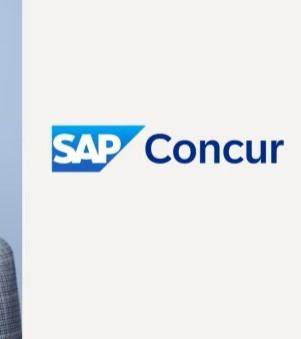The Rising Tide of Business Travel and the Need for T&E Transformation
Business travel is thriving once more, but with it comes renewed complexity — escalating costs, fragmented supplier ecosystems, evolving traveller expectations and stricter regulatory/compliance demands. In this context, organisations are looking to overhaul traditional T&E workflows that were slow, manual and error-prone. As Juneau puts it, firms “want greater efficiencies and stronger control … and they’re willing to replace manual processing so they can reinvest in growth.”
Moreover, in emerging markets like India, the appetite for cloud-based T&E solutions has accelerated over the past five years, making the region one of SAP Concur’s fastest-growing geographies. This growth signals not only a technology shift but a broader mindset change: travel and expense management is no longer simply an administrative overhead — it’s becoming fertile ground for digital innovation and business value creation.
Intelligent Travel Workflows: From Booking to Expense in One Smart Flow
One of the key enablers of this transformation is the unification of fragmented T&E components — travel requests, bookings, payments and expense management — into a single, intelligent platform. As Juneau explains, the new platform (built in partnership with another major travel-services provider) offers organisations the opportunity to integrate travel management company (TMC) services alongside booking and payments, thereby “remov[ing] the silos that impact the traveller experience and enable[ing] travel managers and finance leaders to better manage T&E spend.”
In practice, this means:
- Pre-travel budgeting and approval workflows that ensure spend aligns with policy before it’s incurred.
- Policy-guided booking recommendations that match travellers’ preferences yet remain compliant.
- Receipt scanning, categorisation and missing-data estimation, reducing manual data entry and backlog.
- Automated creation, auditing and submission of expense claims — minimizing delays, errors and administrative load.
- Conversational support through AI assistants that allow travellers to interact naturally (e.g., “Show me available flights to Bengaluru Thursday morning”) and complete tasks without navigating multiple systems.
The AI Foundation: Long-Term Journey, Deep Integration
Contrary to the notion that AI is a new bandwagon, SAP Concur has been applying automation and machine-learning to T&E workflows for nearly a decade. Juneau recalls: “We couldn’t hire people fast enough to do the auditing — so we had to start using AI to automate our own processes.”
Today, the AI footprint spans many parts of the travel-and-expense lifecycle: from policy-aware booking suggestions to real-time expense-audit alerts while travellers are still on the move; from data-driven forecasting to large-scale pattern-detection for compliance and risk. This deep embedment means that AI is enabling a “shift left” approach — moving checks and controls forward in the process (e.g., during booking or payment) rather than only after expense submission.
Analytics, Insight and the Rise of Travel as Value-Creation
With the vast datasets now being accumulated — including bookings, payments, expense behaviour and TMC service integration — the potential for advanced analytics and prediction is profound. Juneau emphasises that organisations can now forecast travel costs before trips occur, understand policy leakage, optimise supplier relationships and manage T&E more proactively in volatile economic conditions.
Indeed, far from travel being a pure cost centre, the vision is for it to become a strategic lever: enhancing duty-of-care, improving traveller experience, delivering predictable spend and driving measurable ROI.
Compliance, Traveller Experience and Data Privacy: Balancing Act
A perennial tension in T&E is between compliance/control (favoured by finance and audit) and traveller convenience/experience (favoured by employees). AI offers a bridge. By understanding both traveller preferences and company policy, it can offer compliant booking options that still feel personalised and efficient. As Juneau notes: “We give choices that match personal preferences yet stay compliant.”
At the same time, concerns around data privacy and AI’s ethical use persist. SAP Concur underscores that data protection is their number-one priority, and AI models are developed with strong safeguards (e.g., company data remains within closed systems, no external large-language-model exposure).
Industry research by SAP Concur shows high comfort levels among business travellers and managers with AI-powered automation — 88 % globally say they would be comfortable using AI for some elements of business travel such as booking or expense management. (July 2025 survey)
Meanwhile training and transparency remain crucial: travellers want assurances of data protection (45 %) and bias control (36 %), and nearly 39 % would like company-provided training on AI usage.
India: A Fast-Growing Market Embracing Automation
In India, organisations are increasingly favouring cloud-based, AI-enabled travel and expense platforms to eliminate manual inefficiencies and put spend back into growth. As Juneau highlights: “In the last five years, we’ve seen the appetite for leveraging cloud solutions accelerate within the India market.”
Given India’s large and growing business-travel population, mobile-first workforce and evolving TMC ecosystem, the region offers fertile ground for AI-driven travel-expense transformation. AI-driven features such as mobile receipt capture, policy-aware booking, integrated payment and real-time expense auditing are especially relevant in the Indian context, where speed, cost-efficiency and regulatory compliance converge.
Outlook: What’s Next in T&E Automation and AI-Enabled Travel
Looking ahead, key trends include:
- More “agentic AI” — assistants that proactively engage travellers, anticipate needs and complete tasks semi-autonomously, not just respond to commands.
- Greater integration across the enterprise — linking travel data with HR, supplier management, sustainability metrics, duty-of-care and broader spend analytics.
- Rising use of predictive modelling to inform policy design, supplier sourcing, risk mitigation and traveller safety.
- Evolving regulatory focus — especially around data privacy, AI governance, cross-border travel analytics and ESG disclosures — will require T&E platforms to embed stronger controls and audit-capability.
- As Juneau states, the goal is for travel & expense processes to become “touch-less, intuitive experiences enabled by industry-leading business-AI and close partnerships with payment and travel-services providers.”
Conclusion
The corporate travel and expense landscape is being reshaped by artificial intelligence and automation. Organisations in India and globally are leveraging AI-enabled workflows to replace manual bottlenecks, strengthen control, enhance traveller experience and extract strategic value from T&E spend. As the shift gains momentum, the winners will be those that adopt a holistic, data-driven approach — aligning technology, policy, people and analytics to convert travel from a cost-centre obligation into a value-generating function.
Source:indianexpressGPT







